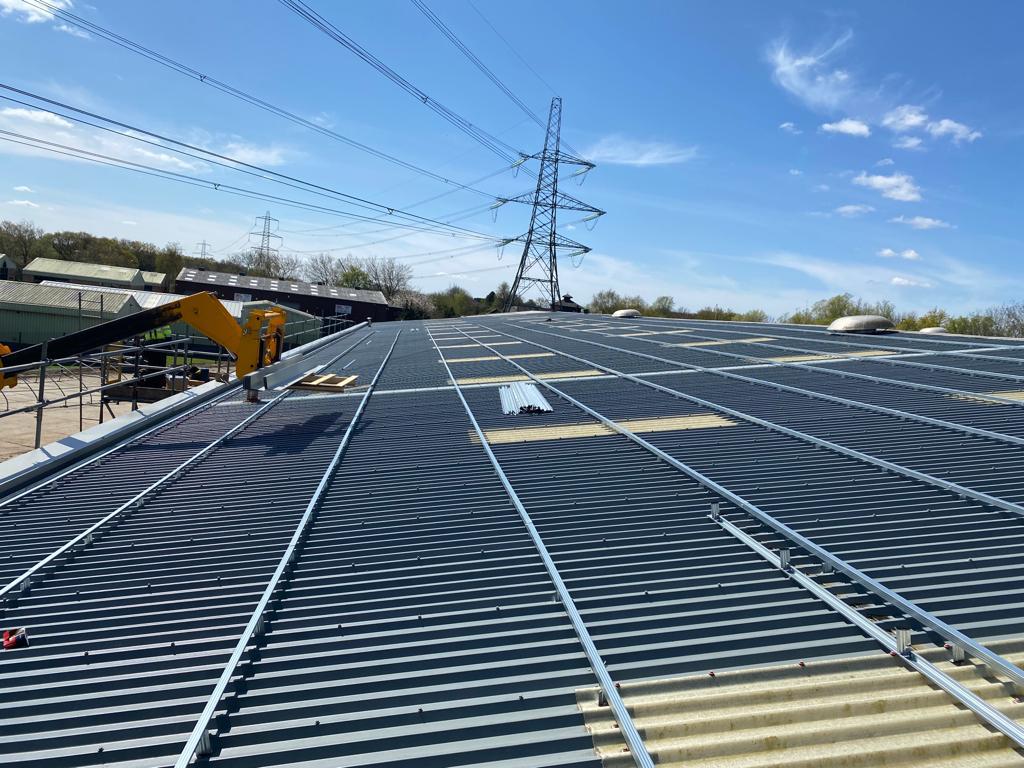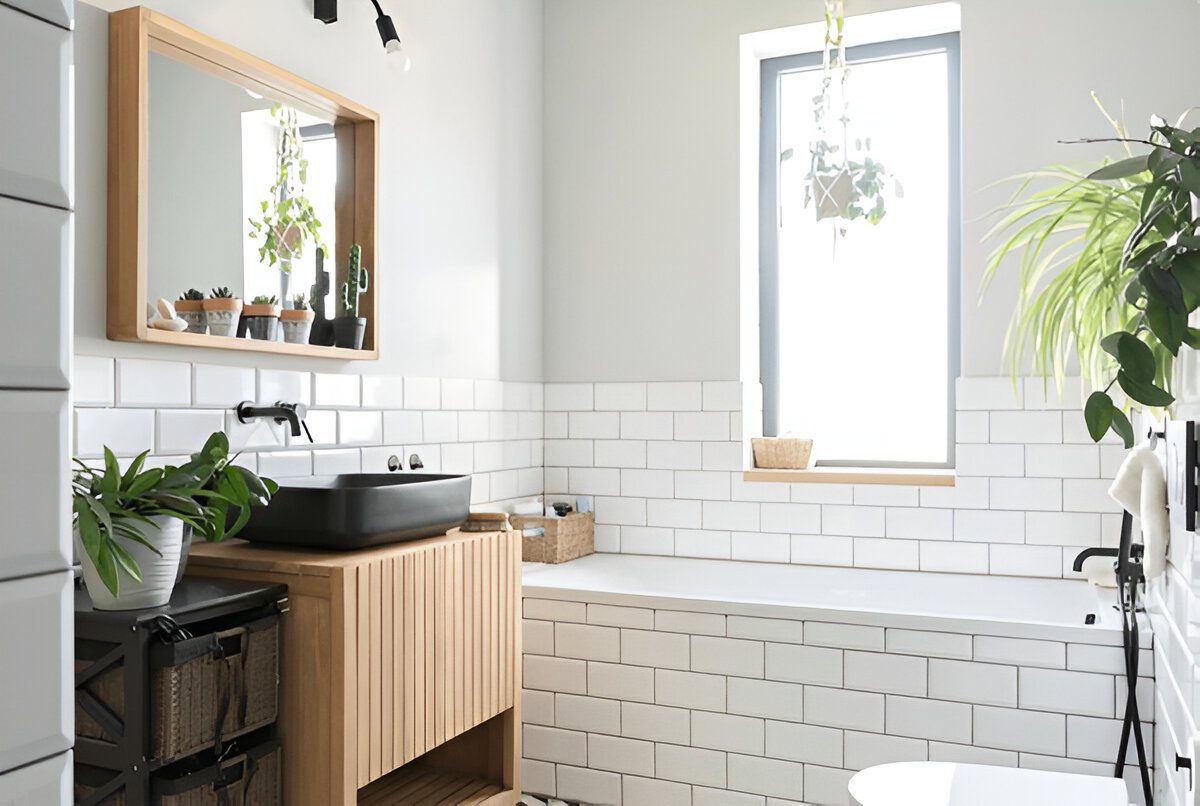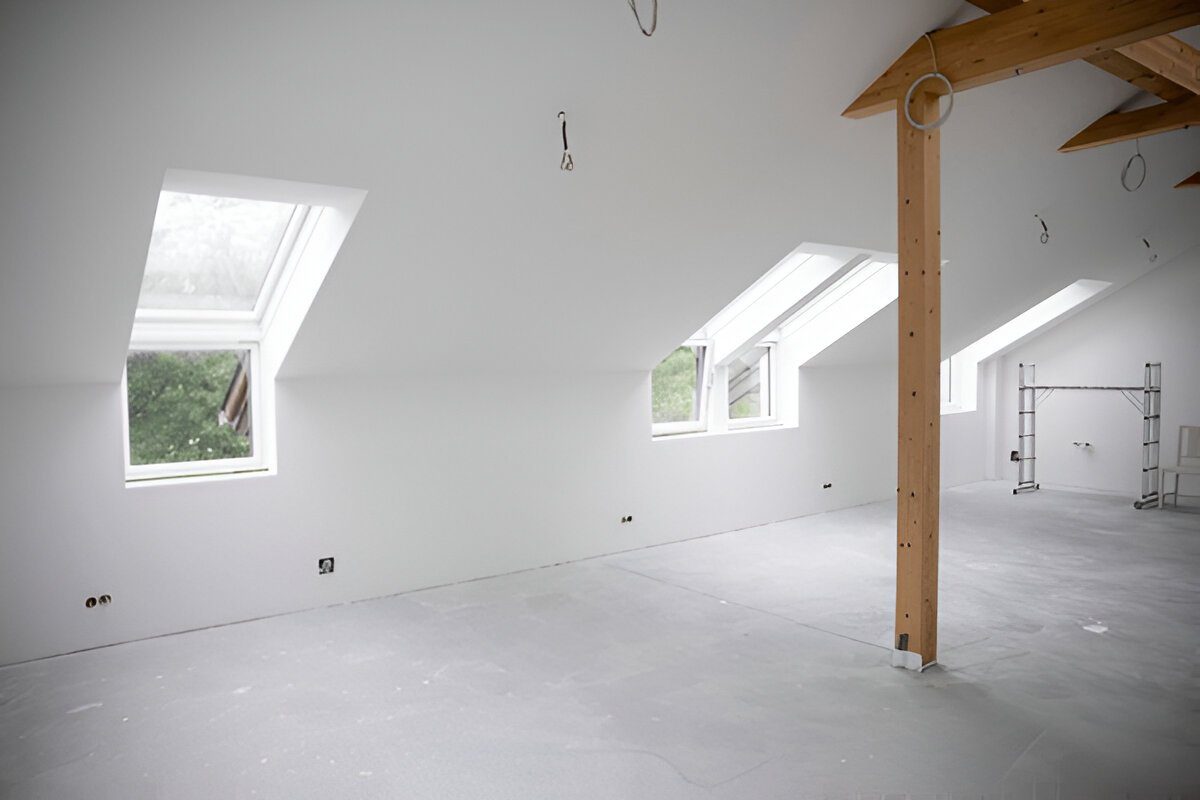When selecting roofing materials for your industrial building, it’s crucial to understand the properties of different types of roof sheets. These sheets vary in durability, cost, and suitability for diverse weather conditions, making the right choice fundamental to the building’s longevity and functionality. Roof sheets come in various materials, including metal, polycarbonate, and composite panels. Each offers unique benefits, such as corrosion resistance in metals and light transmission in polycarbonate sheets, tailored to specific industrial needs.
What Are The Key Factors To Consider When Choosing The Right Roofing Material?
- Durability: Materials like metal and EPDM offer high durability and can last for decades with proper maintenance.
- Cost: Consider both initial costs and long-term maintenance expenses.
- Weather Resistance: Materials must withstand the UK’s varied weather conditions.
- Insulation Properties: Effective insulation can reduce energy costs.
- Maintenance Requirements: opt for materials that require minimal maintenance to save on long-term costs.
How to Select the Right Roofing Material for Your Warehouse?
Considerations for Durability is paramount in industrial settings. Materials must withstand harsh conditions without frequent need for repairs or replacements.
Factors to Consider in Terms of Weather Conditions: Selecting roofing materials requires understanding local climate patterns—choosing water-resistant materials in wet climates or heat-reflective surfaces in warmer regions.
Insulation Options for Industrial Roofing: Proper insulation is critical in reducing energy costs and maintaining internal temperatures. Materials that offer better insulative properties can significantly impact operational efficiency.
Factors To Consider When Selecting The Right Roofing Material
- Local Climate: Choose materials suited to the specific weather patterns in your area.
- Building Structure: The architectural design may limit certain types of roofing.
- Usage Requirements: Consider the specific needs of your operations, such as chemical resistance or fire safety.
Key Aspects To Evaluate For The Best Industrial Roof Type
- Longevity: Materials like metal and modified bitumen are known for their long life spans.
- Energy Efficiency: Reflective surfaces and insulated panels can enhance energy efficiency.
- Installation Complexity: Some materials require more complex and costly installations.
What Are The Different Types Of Commercial Roofing Materials Available?
- Metal Roofing: Durable, fire-resistant, and suitable for a variety of industrial applications. Metal roofing from TataSteel and Kingspan is highly recommended.
- Aluminium Roofing: Lightweight, corrosion-resistant, and ideal for coastal areas.
- EPDM Roofing: Flexible, durable, and suitable for flat roofs. It offers excellent weather resistance.
- TPO Roofing: Known for its energy efficiency and durability.
- Modified Bitumen Roofing: Cost-effective and provides good weather resistance.
Understanding The Durability Of Metal And Aluminium Roofs For Industrial Buildings
- Longevity: These materials can last several decades.
- Maintenance Needs: Regular inspections are necessary to maintain their longevity.
- Cost Considerations: Although the initial cost is higher, the long-term benefits often outweigh these costs.
Exploring The Options Of EPDM Roofing Systems
- Benefits: EPDM is highly durable and offers excellent resistance to UV rays.
- Installation Process: It is relatively easy to install, which reduces labour costs.
- Lifespan: Typically lasts 20-30 years with minimal maintenance.
Comparing TPO Roofing For Its Longevity And Cost-Effectiveness
- Pros and Cons: TPO is energy-efficient but can be more expensive initially.
- Cost Comparison with Other Materials: TPO offers good value over time due to its durability.
- Typical Lifespan: Around 20-30 years with proper maintenance.
Understanding Cladding And Overcladding
- Definition and Purpose: Cladding adds a protective layer, while overcladding enhances existing structures.
- Benefits of Overcladding: Improves insulation and aesthetics.
Different Materials For Cladding And Overcladding
- Metal: Durable and provides robust protection.
- Aluminium: Lightweight and corrosion-resistant.
- Composite Panels: Offer enhanced insulation and aesthetic options.
When And Why To Replace Or Service Cladding And Roofing
- Signs of Replacement Needed: Visible damage, leaks, and increased energy costs.
- Benefits of Timely Maintenance and Repair: Extends the life of your roof and improves energy efficiency.
How To Choose The Best Roofing Contractor For Your Industrial Roof?
- Credentials to Look For: Check for NPORS, IPAF, Asbestos Training Limited, and PASMA accreditations.
- Questions to Ask During Consultations: Inquire about their experience with industrial projects and request client testimonials.
Ensuring The Right Roofing Services For Your Industrial Building
- Service Warranties: Look for guarantees on workmanship and materials.
- Post-Installation Support: Ensure they offer maintenance and repair services.
What Are The Top Considerations For Maintaining A Commercial Roofing System?
- Regular Inspection Schedules: Conduct regular checks to identify issues early.
- Common Maintenance Tasks: Include cleaning, minor repairs, and resealing.
Understanding The Lifespan Of EPDM Roofing Membranes
- Factors Influencing Lifespan: Environmental conditions and installation quality.
- Signs of Wear and Tear: Look for cracks, leaks, and discoloration.
Factors To Keep In Mind For A Cost-Effective Maintenance Plan
- Budgeting for Maintenance: Allocate funds for regular upkeep.
- Preventative Measures: Routine inspections and timely repairs are crucial.
Utilizing Quality Materials And Certifications
Materials We Use in Our Contracts
- Kingspan: Known for high-performance insulation and building envelope solutions.
- Fixingpoint: Reliable fixing and fastening systems.
- IPL: Innovative roofing and cladding solutions.
- TataSteel: Sustainable steel products for roofing.
- Foregale: Quality aluminium and metal roofing products.
- Hampshire Insulation: Effective insulation solutions for energy efficiency.
Importance of Accredited Services
- NPORS Accreditation: Ensures high standards in plant operations.
- IPAF Accreditation: Demonstrates competence in powered access equipment.
- Asbestos Training Limited Accreditation: Ensures safe handling and removal of asbestos.
- PASMA Training: Certification for safe use of mobile access towers.
By considering these factors and choosing the right materials and contractor, you can ensure that your industrial roof stays durable, efficient, and cost-effective.









